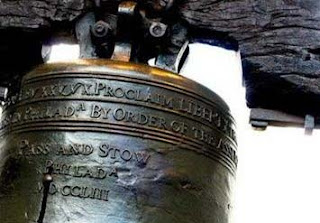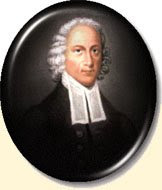
In my last post on this topic, Part 7, we saw that Unlimited Atonement carries with it certain doctrinal consequences. In this post we'll consider the Scriptures that address the questions, “For whom did Christ die?” and “Did Christ actually save anyone? Or did He simply make salvation possible?”
Scriptural Considerations
Christ Came to actually save men . . .
She will bear a Son; and you shall call His name Jesus, for He will save His people from their sins.
Matthew 1:21
For the Son of Man has come to seek and to save that which was lost."
Luke 19:10
It is a trustworthy statement, deserving full acceptance, that Christ Jesus came into the world to save sinners, among whom I am foremost of all.
1 Timothy 1:15
Also consider: 2 Cor. 5:21; Gal. 1:3-4; Tit. 2:14; 1 Pet. 3:18
Christ actually reconciled His people to God through His death . . .
For if while we were enemies we were reconciled to God through the death of His Son, much more, having been reconciled, we shall be saved by His life.
Romans 5:10
18) Now all these things are from God, who reconciled us to Himself through Christ and gave us the ministry of reconciliation,
19) namely, that God was in Christ reconciling the world to Himself, not counting their trespasses against them, and He has committed to us the word of reconciliation.
2 Corinthians 5:18-19
21) And although you were formerly alienated and hostile in mind, engaged in evil deeds,
22) yet He has now reconciled you in His fleshly body through death, in order to present you before Him holy and blameless and beyond reproach
Colossians 1:21-22
Christ accomplished justification for His people . . .
being justified as a gift by His grace through the redemption which is in Christ Jesus
Romans 3:24
But God demonstrates His own love toward us, in that while we were yet sinners, Christ died for us.
Much more then, having now been justified by His blood, we shall be saved from the wrath of God through Him.
Romans 5:8-9
Christ redeemed us from the curse of the Law, having become a curse for us--for it is written, "CURSED IS EVERYONE WHO HANGS ON A TREE
Galatians 3:13
Also consider: 1 Cor. 1:30; Col. 1:13-14; Heb. 9:12; 1 Pet. 2:24
Christ secures regeneration and sanctification for His people . . .
For to you it has been granted for Christ's sake, not only to believe in Him, but also to suffer for His sake
Philippians 1:29
But by His doing you are in Christ Jesus, who became to us wisdom from God, and righteousness and sanctification, and redemption
1 Corinthians 1:30
3) Blessed be the God and Father of our Lord Jesus Christ, who has blessed us with every spiritual blessing in the heavenly places in Christ,
4) just as He chose us in Him before the foundation of the world, that we would be holy and blameless before Him In love
Eph. 1:3-4
Also consider: Acts 5:31; Titus 2:14, 3:5-6; Eph. 5:25-26; Heb. 9:14, 13:12; 1 John 1:7.
As a matter of fact, the Scriptures do not speak of Salvation in tentative terms. Instead, salvation is spoken of as being accomplished by Christ, not merely as being made possible by Him. That’s why on the cross he proclaimed “it is finished,” not “it is possible.”
The Good Shepard
We’ve seen thus far that Christ was successful in his mission. Consider John 6:35-40, where Christ declares that “all that the Father gives Me will come to Me.” He further promises that He’ll lose none and that He’ll raise them all up on the final day. A good Shepard indeed!
In the tenth chapter of John we learn more of our good Shepard. For instance, we learn that he laid down His life for His sheep. He also promises that His sheep will hear His voice. Moreover, He explained to the unbelieving Jews that the reason they didn’t believe is “because you don’t belong to my sheep.”
What are we to make of this? Christ died for His people—the sheep—not the goats. Furthermore, He declared that His sheep will hear His voice, meaning that His elect will respond to the gospel call. Finally, the reason the unbelievers are unbelievers is because they are not His sheep. Consequently, Christ’s death was not for everyone, but for His elect (sheep) only—not a drop of Christ’s blood was wasted!
Also consider: Mat. 1:21, 20:28, 26:28; Rom. 8:32-34; Heb. 9:15, 28.
Conclusion
Many more Scriptures could be cited, such as Christ’s high-priestly prayer in John 17, where He prays “not for the world,” but “for those whom you have given Me.” Even though this is but a brief survey, the Scriptures are clear: Christ died for the elect, those whom were given to Him by the Father before the foundation of the world. Furthermore, Christ actually accomplished salvation for His people, not merely making it possible. Once again, as Christ said on the cross, “It is finished!”
In our next installment, we’ll consider the Arminian doctrine of Resistible Grace.
--The Catechizer
Labels: Calvinism vs. Arminianism
















